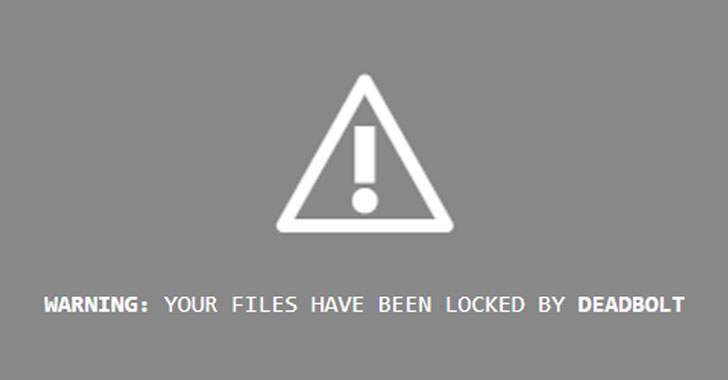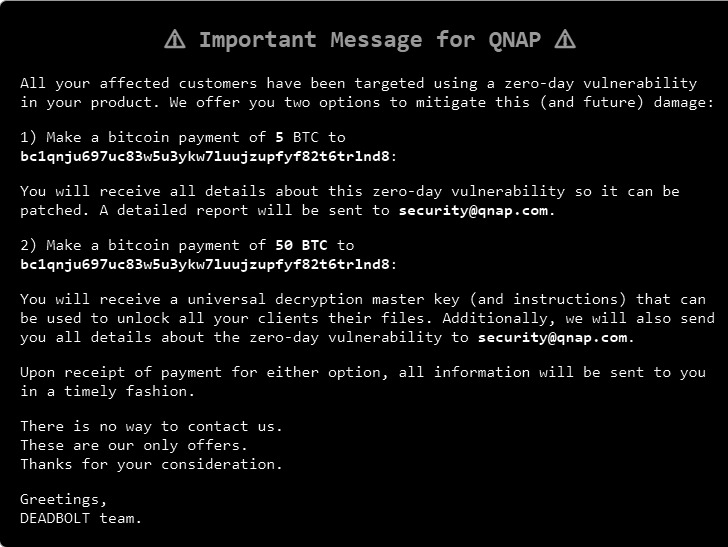Products You May Like
Taiwanese company QNAP has warned customers to secure network-attached storage (NAS) appliances and routers against a new ransomware variant called DeadBolt.
“DeadBolt has been widely targeting all NAS exposed to the Internet without any protection and encrypting users’ data for Bitcoin ransom,” the company said. “QNAP urges all QNAP NAS users to […] immediately update QTS to the latest available version.”
In addition, QNAP is also urging users to check if their NAS devices are public-facing, and if so, take steps to turn off the port forwarding function of the router and disable the Universal Plug and Play (UPnP) function of the QNAP NAS.
The advisory comes as Bleeping Computer revealed that QNAP NAS devices are being encrypted by the DeadBolt ransomware by exploiting a supposed zero-day vulnerability in the device’s software. The attacks are believed to have started on January 25.
The ransomware strain, which locks the files with a “.deadbolt” file extension, demands that victims pay a ransom of 0.03 bitcoins (approximately $1,100) to a unique Bitcoin address in exchange for a decryption key.
On top of that, the operators of the ransomware claimed they are willing to offer complete details of the alleged zero-day flaw if QNAP pays them five bitcoins (~$186,700). It’s also ready to sell the master decryption key that can be used to unlock the files for all affected victims for an extra 45 bitcoins (~$1.7 million).
QNAP devices have emerged a frequent target of ransomware groups and other criminal actors, prompting the company to issue numerous warnings in recent months. On January 7, it advised customers to safeguard their NAS devices from ransomware and brute-force attacks, and ensure that they are not exposed to the internet.
We have reached out to QNAP for further comment, and we’ll update the story if we hear back.



